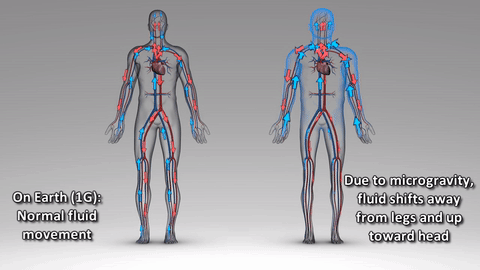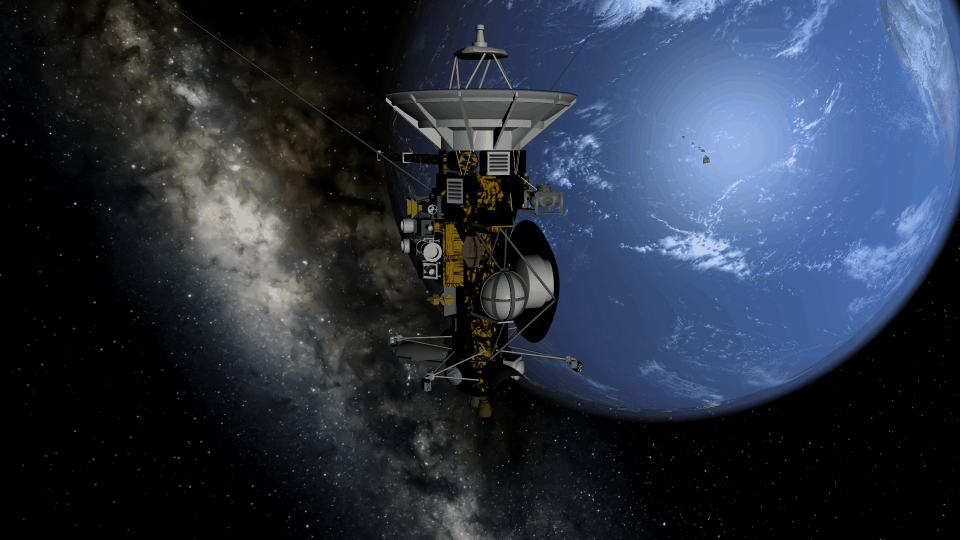Big Falcon Rocket - The Challenges (part two)
The Challenges for Space X's Big Falcon Rocket
(Part two of three)
In my first post concerning Space X's Big Falcon Rocket (BFR), I discussed issues associated with the rocket decent, payload bay including crew quarters, and likely affects these travelers can expect to deal with. I will now expand on each of these issues to provide a more clear understanding of the specifics associated with each factor.
Sensory Conflict
When one enters space, there is no way to know whether you are up, down, left, or right. Weightlessness puts your body in a floating sense which does not allow you full control of your sensory receptors. As different receptors send signals to the brain, they may conflict with each other. Due to this sensory conflict, your body experiences different sensations such as headaches, vomiting, nausea, irritability, and discomfort. Approximately 40% of astronauts experience these symptoms when traveling to space. So, if you have a crew of 100, such a flight on the BFR could lead to 40 sick individuals. Some type of preplanned medical treatment is then likely to be needed when planning such a trip.
Space Motion Sickness
Motion sickness in space is the most common issue astronauts have to deal with concerning sensory conflicts. Because of zero-g, the brain provides erroneous or disorienting information causing spatial disorientation. 67% of the space shuttle astronauts and 48% of cosmonauts reported going through these issues. Since there seems to be no difference whether you're a career astronaut or not, a member of this mission has a relatively high probability of experiencing this sort of sickness in space. This space sickness is normally experienced within the first hour of flight and can last two - three days. Scopolamine can be used to alleviate the symptoms, but doing so can make them dependent on this drug for relief which ultimately lengthens the time to overcome such sickness. 67 of 100 passengers having to deal with this experience can make the start of such flight rather interesting unless Musk is prepared to handle this issue.
Neurovestibular System
Another issue with microgravity is the effect it has on the body's ability to sense tilt and roll. While going through acceleration training at NASTAR, we had a helmet placed on our head while we were rotated in a circle in various directions. Eventually, I was unable to determine whether I was moving clockwise or counterclockwise. Such loss of sensation can have a serious effect during maneuver operations, but as passengers, the biggest challenge will be knowing where their arms and legs are or even how their body is orientated. Passengers may experience in-flight misperceptions as to their location and directional caused by a loss of spatial orientation.
But what causes all this disorientation? Inside the cupula of your ears are hair cells that send nerve impulses to the brain letting you know about the movement of your body.

Image credit
When in a microgravity environment, the hair cells will not move back to the center as quickly as it would in a 1G environment like on Earth. Therefore, if you beginning moving to the right, your hair cells will remain to the left even after your right movement has stopped. This inability to fully control your senses brings on this disorientation and possibly even nausea.
Fluid Shift
Fluid shift is yet another issue these passengers will face while traveling in space. Due to the lack of gravity, fluids shift upward towards the head in order to equalize such fluid. As this

Image credit
shift occurs, the body records it as a blood volume increase which ultimately causes someone to get rid of the extra fluid through the kidneys. This results in individuals feeling like they have a cold, their face gets puffy, they have a lack of thirst, and they may experience up to a 10% loss of body fluid. Eating can be less enjoyable as they may experience a loss in taste for foods. The loss of fluids can also be hazardous for anyone susceptible to kidney stones.
Bone Loss
Since passengers are now in a microgravity condition, their skeletal system no longer experiences the pressure of gravity on the body. Without such pressure, bone maintenance is disrupted causing bone demineralization. Such activity is similar to elderly experiencing osteoporosis. This bone demineralization is high in the spine and legs, and without exercise, it can become a serious problem when landing on Mars. Since there is no load in microgravity, the spinal column is no longer compressed causing the disks to expand. The spine lengthens as much as 1 – 2 inches but a side effect is pain experienced in the back.
Muscle Atrophy
Just like bone loss, microgravity also causes less load on the legs and back muscles for posture. Muscles eventually weaken which could lead to fall-related injuries upon landing on Mars. Passengers can lose up to 20 – 40% of muscle size and function unless countermeasures are used. NASA currently has astronauts using countermeasures on the ISS include running, bicycle and resistive weight training.
With 100 passengers in the BFR, this will be quite an undertaking since it requires two hours of exercise daily to help counteract both bone and muscle loss. This would require 20 exercise machines running in two-hour shifts for over 10 hours each day of the six-month journey. This might make for a good social event daily, but keeping them at this pace is likely to be challenging if motivation declines.
Psychological Factors
This leads up to the psychological factors each of these passengers will have to overcome for six months. Anyone who has dealt with groups knows that conflict is going to happen at times. Take this conflict and add a loss of personal contact with family and friends, the loss of simple things like the smell of nature or special foods, or even the reduction of social media contact during the journey. Try taking away a child's cell phone for a day and you'll know what I mean. While in space, you will lose the breeze on your face, the smell of a rain shower, birds chirping in the air, and many other simple things you take for granted. Astronaut Scott Kelly spent a year on the International Space Station. During this tour, his sister-in-law former Arizona Rep. Gabrielle Giffords, was shot while doing a speaking engagement. He could not return, nor could any of the passengers if some sort of emergency occurred during their journey. Now consider you are placing 100 individuals in a confined space for six months. This would be a challenge for anyone.
It will be interesting how Elon Musk tackles such issues as he prepares for such a mission in the future. Perhaps he'll use this as an educational tool to garner support for such a mission. It could turn into a joint NASA/Space X educational opportunity. Whatever he does, I look forward to sharing these challenges both in the classroom and online.
In my third and final post, I will discuss the challenges these passengers will face upon landing on Mars. This will include further discussion relating to psychological factors along with the challenges of radiation, and setting up a post on Mars. I hope you have enjoyed part two and it has enlightened you about issues in space travel. Please consider up voting my post and/or resteeming.
Great post ..
Really wonderful .. I wonder what you mentioned or the will of man
Thank you for sharing this with us
@theuxyeti meet my dad @spederson. Now go geek out.
i swear sometimes im in a parallel universe i so remember reading this commenting and up-voting but but neither exist , soooo weird this is not the first time this has happened on steemit either. maybe its those guys messing around with CERN haha maybe i mistaken it for another... i just want to congratulate on the curie upvote too.
be well
@jpederson96
@spederson
ps. great sci post
Thanks mate!
I really enjoyed reading this article and I hope we will not wait long for the final part. As a hardcore SF fan, I think that is great that you mentioned psychological factors - these can be catalyst for many unexpected scenarios :-) I wish you all the best and can't wait for the next reading!
Thank You. I have some great examples for my next post related to movies like The Martian and the MARS mini-series. Though not intentional, these shows can distort reality even when they try to make it realistic. I use them as examples in my instruction. I've learned that students formulate thoughts based on these shows without validating what is real and what is hollywood.
This is so well written. The complications are always going to be there. Let's hope that NASA and SpaceX, come together for the greater good, as you mentioned.
Will be waiting for your final post.
Thank You. With Space X being paid for missions to the ISS, I'm sure their collaboration will strengthen. I can't wait until we start sending astronauts on our rockets vs the Russians. This will infuse that much more money into Space X to continue their passion.
Thank you for the insightful read! I'm particularly interested in the psychological impacts of proposed space travel and off planet colonization. How the heck are we going to interact and function within the confines of space when we've never been able to get along on our own planet!
So interesting to live in a day and age where these questions are not science fiction, nor even the exclusive province of a national or international agency - private space exploration! This possibility seems closer and closer to reality so your posting is so relevant and timely. Looking forward to the next part of this series, Mars has long held a romantic interest to me (big fan of the Barsoom/ Princess of Mars series of books). Of course I doubt there will be much overlap between the sword and planets fiction genre and your upcoming post :)
This post was nominated by a @curie curator to be featured in an upcoming Author Showcase post on the @curie blog. If you agree to be featured in this way, please reply and:
You can check out the previous week's Author Showcase to get an idea of what we are doing with these posts.
Cheers - Carl (@curie curator)
I would be honored. You are free to quote and use images as I referenced my material. I teach exploring space to Juniors in a private school and cover a lot of this material. I have a Master degree in Space Education and am very passionate about anything space. I have conducted all my research for my final article which I hope to post by late Friday. You are correct in that this is a very exciting time. Many countries now have a strong aspiration to expand into space. As this happens, this will challenge lawyers to meet the demands in changes to treaties to support commercialization of space.
Author showcase post is up :)
https://steemit.com/curation/@curie/curie-author-showcase-february-22nd-2018
Congratulations! This post has been upvoted from the communal account, @minnowsupport, by JPederson96 from the Minnow Support Project. It's a witness project run by aggroed, ausbitbank, teamsteem, theprophet0, someguy123, neoxian, followbtcnews, and netuoso. The goal is to help Steemit grow by supporting Minnows. Please find us at the Peace, Abundance, and Liberty Network (PALnet) Discord Channel. It's a completely public and open space to all members of the Steemit community who voluntarily choose to be there.
If you would like to delegate to the Minnow Support Project you can do so by clicking on the following links: 50SP, 100SP, 250SP, 500SP, 1000SP, 5000SP.
Be sure to leave at least 50SP undelegated on your account.
Thank's. Come here https://steemit.com/steemiteducation/@lingi/patience-facing-naughty-children
At the end it ends again like this:
xD xD xD xD
SPACEX is FAKE.